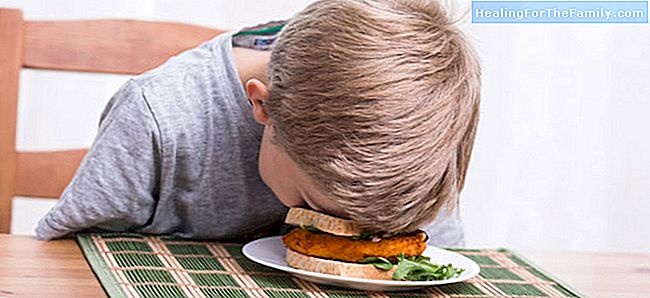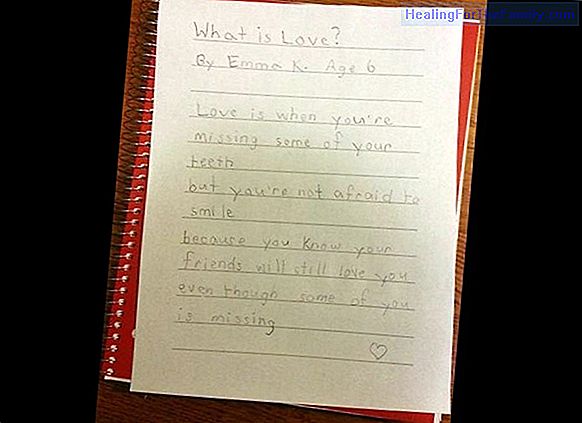How the lack of vitamins affects the health of the child
The importance of offering a balanced and healthy diet to children is one of the headaches of parents today, as it is not always easy to get first for the lack of time of the parents and second for the amount of extracurricular activities of the children. Offering unhealthy food one day, at a party
The importance of offering a balanced and healthy diet to children is one of the headaches of parents today, as it is not always easy to get first for the lack of time of the parents and second for the amount of extracurricular activities of the children.
Offering unhealthy food one day, at a party or on vacation, is something that does not affect health, but when nutritional recommendations are continually evaded, problems can be observed depending on which micronutrient is the deficit. This is how the lack of vitamins affects the health of the child.
How the lack of vitamins influences the health of the child

Although we do not consider how our children can be affected by the distancing of what is a healthy and balanced diet, there are many physical and emotional repercussions that can arise in the health of our children. children.
Usually it is difficult to ingest vitamins and minerals in excess if they are provided only from the diet. It is more likely that there is a lack of vitamins in the child's diet and that is how it affects their health:
- Vitamin A: produces vision and skin problems. Its excess, however, is not desirable either, since it can produce bone and coagulation problems.
- Vitamin D: causes rickets and other problems in the fixation of calcium in the bones and teeth, increasing the risk of caries. Although vitamin deficiency is rarely seen, vitamin D is one of the most common problems in childhood, due to its close relationship with growth. - Vitamin E: can cause hemolytic anemia and problems in the functioning of muscles. Because of this, children may feel tired and low in energy.
- Vitamin K: given its anti-hemorrhagic capacity, its deficit implies an increase in hemorrhages and coagulation problems. It is very important for the wounds to heal .
- Vitamin C: its deficiency causes scurvy, which affects the hair and skin, in addition to increasing the likelihood of bruising, nosebleeds or gums, and scarring problems. Its close relationship with the absorption of iron makes that, in its absence, this mineral is absorbed with more difficulty, being able to trigger in anemia. The child may also feel weak and apathetic. - Vitamin B1: its deficit causes beriberi, a nervous disease that can end, if severe in severe neurological diseases. It affects theability to concentrate
and therefore can have repercussions at school level. - Vitamin B2: its lack causes eye disorders. - Vitamin B3: cause of pellagra, characterized by problems in the skin and nervous system. You can also observe dramatic
mood swings when the deficit is severe. - Vitamin B6: it is associated with
growth problems
but also with the appearance of anemia, decay and inappetence. - Vitamin B12: this deficit usually appears in vegan and vegetarian diets that are not supplemented, characterized by the appearance of pernicious anemia
.











